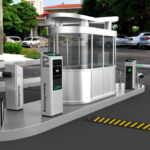Recreational Vehicle (RV) travel has seen a surge in popularity in recent years, and it’s not hard to see why. The freedom of the open road, the ability to explore new destinations, and the comfort of home on wheels are alluring to many. However, the cost of RVing can sometimes be a deterrent. Fortunately, there are ways to make RV travel affordable without sacrificing the quality of your journey. Here are some tips and strategies for budget-friendly RVing, making this form of travel accessible to a wider range of adventurers.
1. Choose the Right RV
One of the first decisions that can greatly impact the affordability of your RVing adventure is the choice of the RV itself. There is a wide range of RV types, from massive Class A motorhomes to compact campervans. While larger RVs offer more space and amenities, they come with higher price tags and operational costs. Smaller RVs are generally more fuel-efficient and easier to maneuver, making them budget-friendly choices for many travelers.
2. Consider Renting
If you’re not ready to commit to the cost of buying an RV, renting can be a cost-effective alternative. Renting an RV for a specific trip allows you to experience the joys of RV travel without a long-term financial commitment. This approach is particularly useful for occasional travelers who don’t want to invest in an RV that sits unused for most of the year. You can also take out a loan or get an RV on finance even if you have bad credit.
3. Plan Your Routes Wisely
Fuel costs can be a significant portion of an RV trip’s budget. To keep these costs in check, plan your routes carefully. Opt for shorter distances between destinations and consider more direct routes to save on fuel. Apps and websites that help you find the most affordable fuel stations can also be invaluable in reducing your expenses.
4. Camp Smart
Camping fees can add up, but there are ways to minimize these costs. Look for free or low-cost campgrounds, such as public lands managed by the Bureau of Land Management or the U.S. Forest Service. Many private campgrounds offer discounts for longer stays, so consider staying at one place for an extended period to maximize savings. Additionally, consider boondocking (camping without hookups) to save on camping fees, as long as your RV is equipped for this style of camping.
5. Invest in Solar Power
RV parks often charge extra fees for electricity hookups, which can add up over time. To cut down on these costs, consider investing in a solar power system for your RV. Solar panels can help you generate your electricity, reducing your reliance on hookups and saving you money in the long run.
6. Join RV Clubs
Joining RV clubs or memberships can provide you with access to exclusive discounts and resources. Many RV clubs offer campground discounts, trip planning assistance, and even roadside assistance. While there may be an initial membership fee, the savings and benefits you receive can make it a cost-effective choice for avid RVers.







